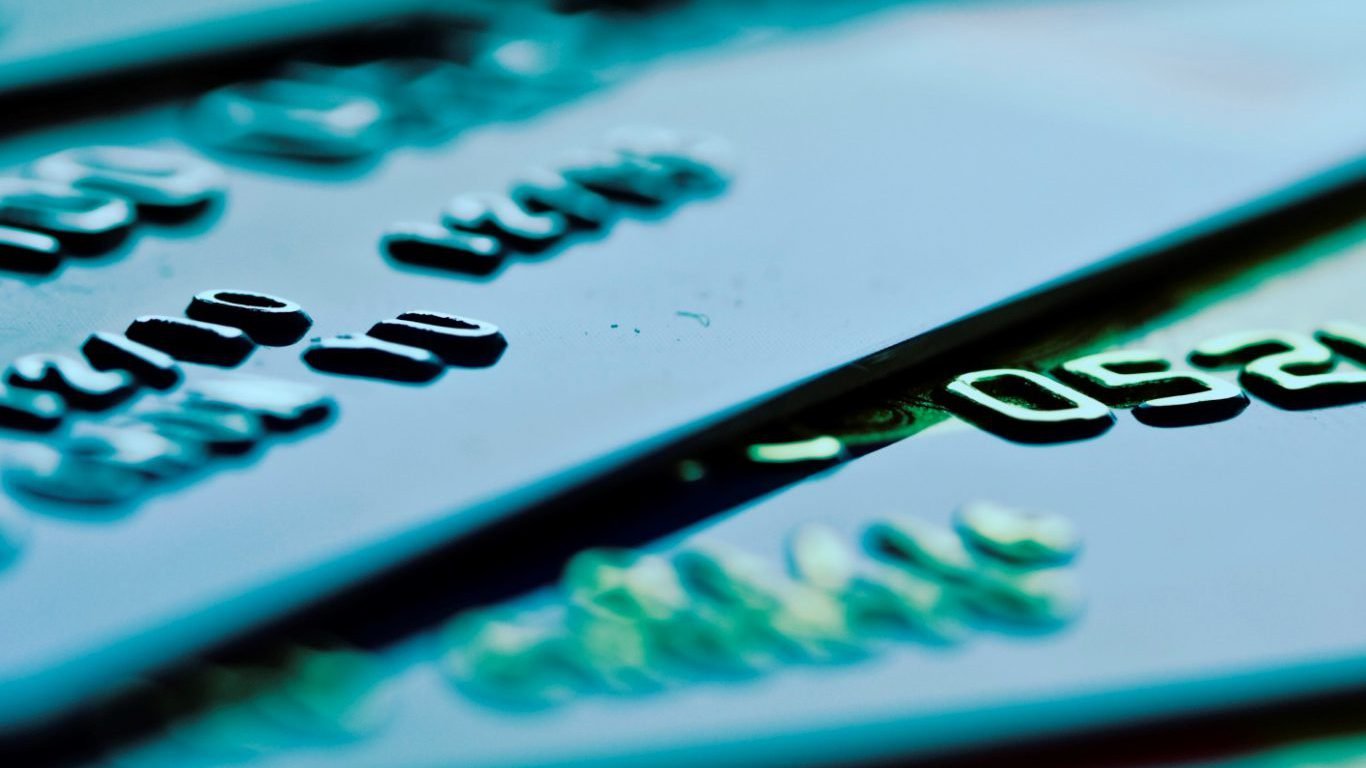Banking, finance, and taxes
The 2016 Bullish and Bearish Case for American Express and Visa

Published:
Last Updated:

The major credit cards of the Dow had a somewhat mixed year with each at opposing ends of the spectrum. Visa Inc. (NYSE: V) was the obvious winner as a card processor, while American Express Co. (NYSE: AXP) went south as a credit card issuer. There were a fair amount of unique factors that precipitated these polar performances, despite both companies residing in the same industry.
Now that 2015 has ended, 24/7 Wall St. wanted to see what the strategists and analysts on Wall Street expect for the stock market and key stocks in 2016.
It turns out the bull market was interrupted in 2015 as the Dow Jones Industrial Average closed out the year at 17,425.03 for a change of -2.2% for the year. That may be hardly a reason to call a bear market ahead, but it is after six straight years of gains.
American Express
While the index performance of the Dow does not account for individual stock dividends, American Express closed out 2015 at $69.55, for a loss of 24.2%, including its dividend adjustments.
For the year ahead, the consensus analyst price target from Thomson Reuters is $80.92. If the analysts are correct, the expected total return for American Express would be 18%, if you include its dividend yield of 1.67%.
American Express took a huge shot this past year when its Costco partnership was ended. Prior to this, Amex was the exclusive card of Costco, but after these companies went separate ways, American Express realized that it had lost a very valuable partner.
This company may have Warren Buffett and Berkshire Hathaway as the largest shareholder, but the good news stops there as it was among the worst Dow stocks of 2015. Having the highest income client base hasn’t helped the company at this time, and losing Costco just added insult to injury. The dividend is underwhelming as well, and actually turning itself around may be hard considering that American Express already has exited or paired down on so many operations. Is the stock cheap, or is it a value trap?
A strong U.S. dollar hurt American Express in its overseas markets, which in turn precipitated poor earnings over the course of the year. However this was not the case for its counterpart, Visa.
Visa
Visa ended 2015 at $77.55, for a gain of 19.1%, including its dividend adjustments. For the year ahead, the consensus price target is $86.47, so the expected total return for Visa would be 12.2%, if you include its dividend yield of 0.72%.
Visa shares were trading at $75.27 after a couple days of trading in 2016. Visa is considered a winner in the electronic payment and IT services space, and Goldman Sachs sees Visa holding its share and winning in payment processing, despite continued sector pressure from cloud cannibalization.
The company operates one of the world’s most advanced processing networks —VisaNet — which is capable of handling more than 56,000 transaction messages a second, with fraud protection for consumers and assured payment for merchants. Not to mention, Visa is also in over 200 countries.
Early in 2015, Visa had a stock split that completely changed how much it dominated the price-weighted Dow. Visa was originally the most heavily weighted company in the index, and this definitely precipitated a rebalancing of the Dow. Although a split might not mean much in and of itself, it is a move that companies take when they believe it allows more retail investors to buy their stock.
Keep in mind that credit card companies could be some of the best-performing large cap stocks come 2016, at least that is what the analyst targets might imply. Considering the Federal Reserve plans on raising interest rates this year and banks already have an excess in their reserves, could the velocity of money in the U.S. economy pick up? Accordingly, the faster that money changes hands, the more money credit card companies make as they take a fee on each transaction.
Take the quiz below to get matched with a financial advisor today.
Each advisor has been vetted by SmartAsset and is held to a fiduciary standard to act in your best interests.
Here’s how it works:
1. Answer SmartAsset advisor match quiz
2. Review your pre-screened matches at your leisure. Check out the
advisors’ profiles.
3. Speak with advisors at no cost to you. Have an introductory call on the phone or introduction in person and choose whom to work with in the future
Take the retirement quiz right here.
Thank you for reading! Have some feedback for us?
Contact the 24/7 Wall St. editorial team.